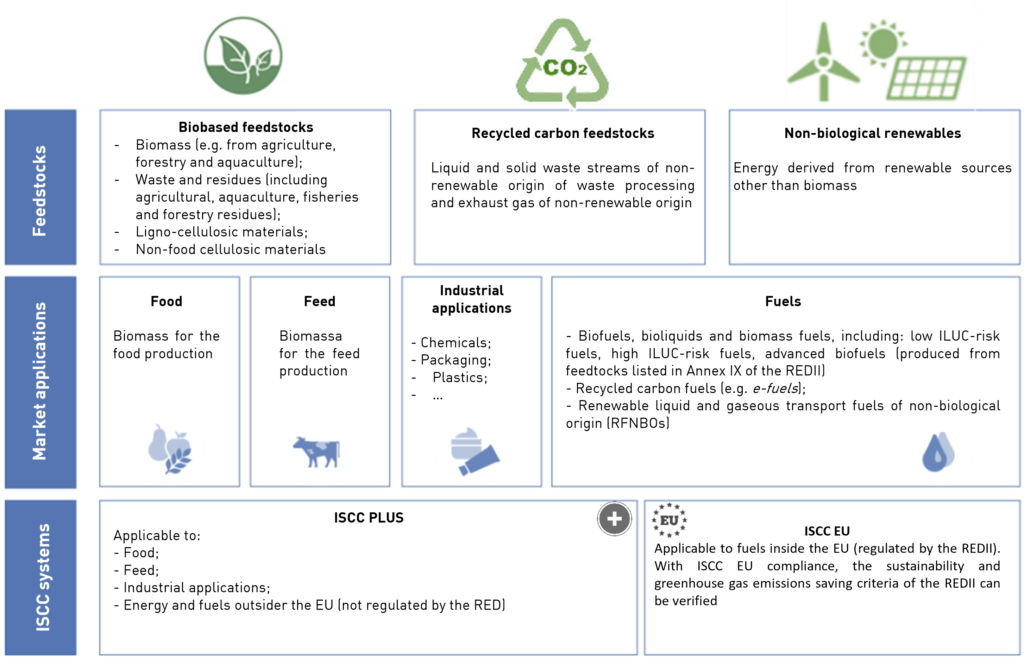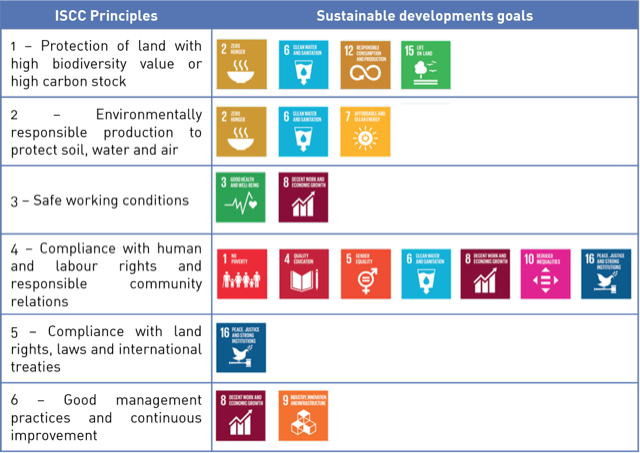Sustainability Certification (ISCC)
Environmental Sustainability
Why should my company implement ISCC certification?
Society’s growing attention to the importance of sustainability has been bearing greater regulatory pressure on the global economy to make it increasingly sustainable, to ensure compliance with internationally agreed environmental conservation objectives (including limiting global warming). Therefore, in addition to a moral/ethical duty, the adoption of sustainable practices is also increasingly a legal duty that companies must demonstrate to be able to fulfil.
One of the mechanisms with greater international recognition to demonstrate compliance by organizations with legal obligations regarding sustainability in the sector of raw materials and products of biological origin is certification by the ISCC system (International Sustainability & Carbon Certification). This certification system comprises an approach that integrates the various stages of the logistics chain and aims to ensure the sustainability and traceability of products and raw materials traded throughout the chain. It is based on a set of principles that include the protection of areas of high biodiversity and carbon fixation, good agricultural practices, safe working conditions, compliance with international laws and treaties, adequate management and continuous improvement. These principles are aligned with several of the sustainable development goals established by the Organization of United Nations (UN) for the 2030 Agenda for Sustainable Development.
This certification system comprises two main models: ISCC EU and ISCC PLUS. Certification under the ISCC EU model demonstrates compliance with the sustainability requirements specified in the European directives regulating renewable energy (RED) and fuel quality (FQD) and is therefore suitable for organisations operating in the biofuels sector of the European community energy market. The ISCC PLUS model has a wider scope, comprising more markets and types of materials, thus becoming more suitable for organisations wishing to extend the demonstration of their sustainable practices to their business operations in international markets outside the European Union and other sectors, in addition to biofuels such as food and (bio)chemical industry.
Certification
In short, some of the reasons that may justify an organization’s ISCC certification are:
We assume ourselves as agents of change and innovation in organizations
At C-GREEN we have experience in supporting various organizations in the implementation and maintenance of ISCC certification schemes. Therefore, we believe we can play an important role in extending this certification to other organizations, in different markets and geographies, thus contributing to the establishment of a more sustainable global economy.


